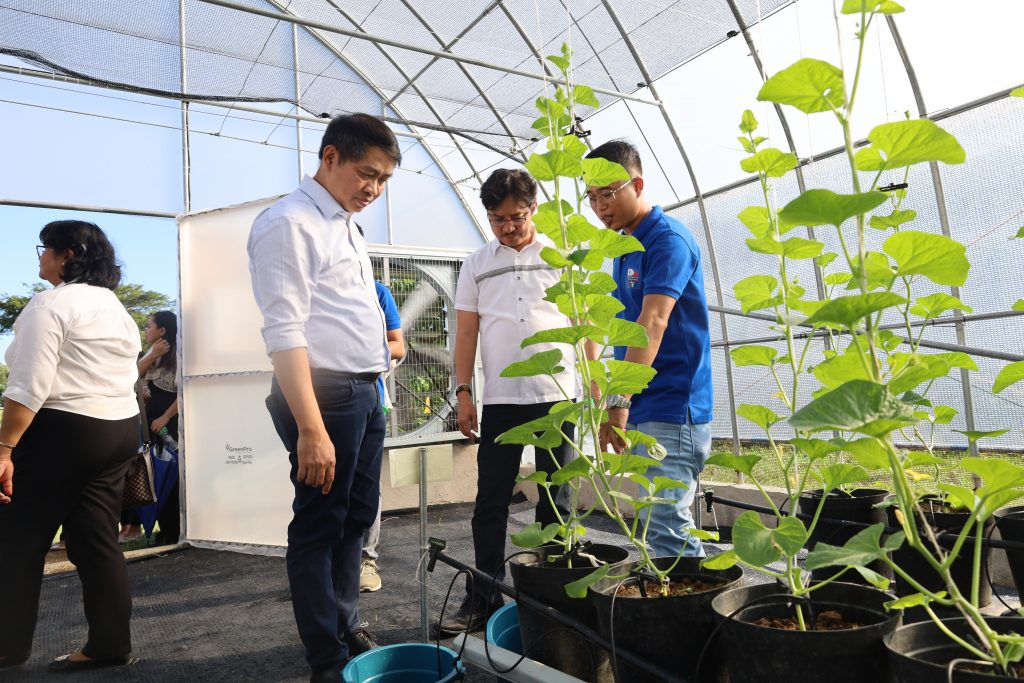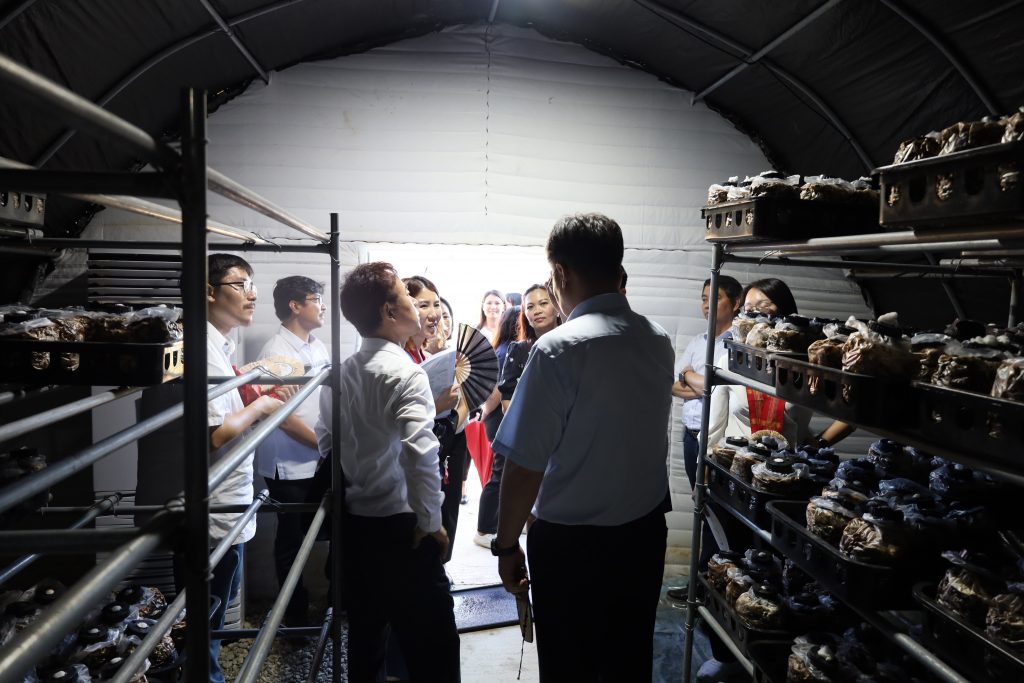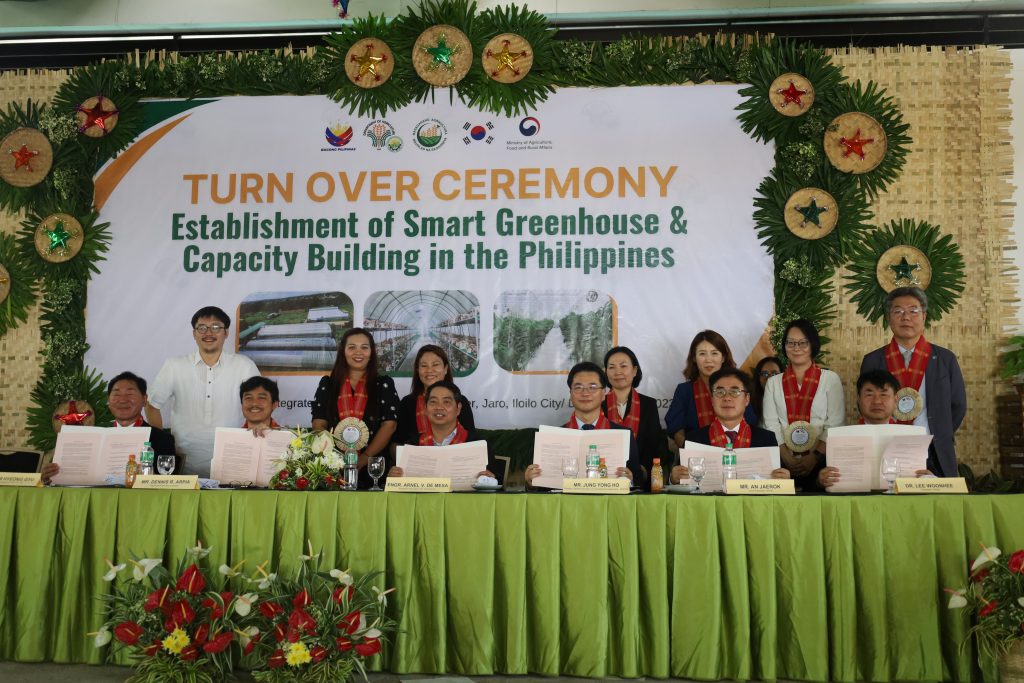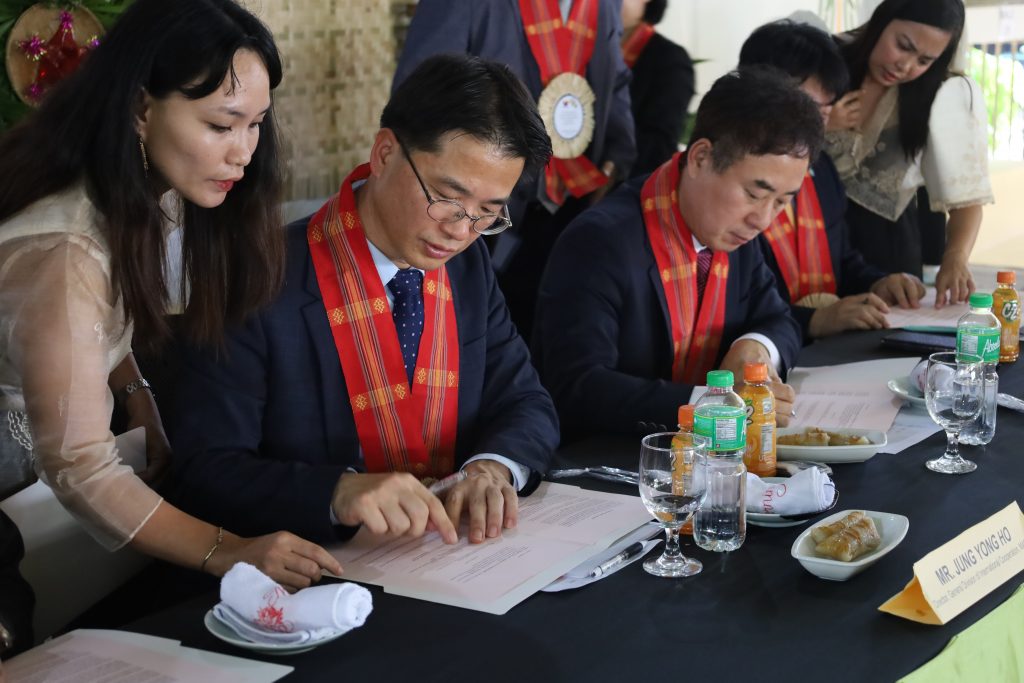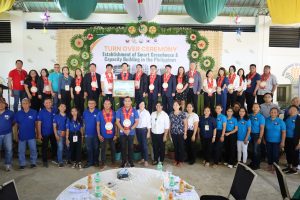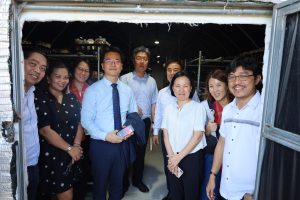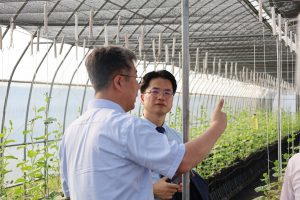Korean-style Smart Greenhouse officially turned over to DA Western Visayas
Posted by: RAFIS DA6 | Posted at: December 21, 2023
The Department of Agriculture – Western Visayas (DA-WV) recently received officially the keys to the Smart Greenhouse and Capacity Building project, funded by the Ministry of Agriculture Food and Rural Affairs of the Republic of Korea (MAFRA).
The PhP 65-million project grant from MAFRA for ten greenhouses facilities— six for mushrooms and four for tomato and paprika not only addresses climate change concerns but also introduces advanced agricultural practices, marking a significant milestone in the continuing collaboration between the Philippines and Korea.
This climate-proof facility project was launched on March 21, 2022 situated at a 3,000 sq.m. area at Western Visayas Integrated Research Center (WESVIARC) in Hamungaya, Jaro, Iloilo City. It is managed by the Korea Agency of Education, Promotion and Information Service in Food, Agriculture, Forestry and Fisheries (EPIS) and implemented by the Hankyong National University.
During the turnover ceremony held on December 20, MAFRA Director General Yong Ho Jung expressed his appreciation to the Philippine government, the DA, EPIS, and the team from Hangkyong National University consortium for their instrumental role in the Smart Greenhouse project.
“The successful handover of this project will greatly contribute to DA’s effort in enhancing future agriculture economic capability through smart agriculture,” he underscored.
Director General Jung also emphasized that the Korean government recognizes the Philippines’ development plan for 2023-2028, with a specific focus on the modernization and transformation of the agriculture sector where the Smart Agriculture project aligns with these goals, making it an essential component for both country’s collaborative efforts.
“As we gather in this ceremony, I pledge to exert great effort in our ongoing international agriculture cooperation project with the Philippine government. I also ask all of you to maintain your invaluable interest and unwavering support in this endeavor,” he concluded.
Meanwhile, EPIS Vice President Jaerok An highlighted the significance of the Smart Greenhouse project, noting its adaptation of Korean-style smart agriculture technologies to Philippine conditions.
Vice President An emphasized the anticipated impact on productivity and farmer skill development through training and the cultivation of high-value crops. He also expressed optimism that these Korean-style smart farms will greatly assist the Philippine government in shaping and refining policies related to smart farming.
On the other hand, DA Assistant Secretary for Operations Arnel V. De Mesa said the turnover of the Smart Greenhouse project is more than the transfer of the infrastructure, it signifies a shared commitment to advancing farming practices, research, and technological innovation in the country.
ASec. De Mesa also urged the stakeholders to remain advocates for equitable access to these innovations.
“The benefits of technology should reach every corner of our agricultural landscapes ensuring that no farmer is to be left behind. Our shared success today lays the foundation for an inclusive and thriving agricultural community,” ASec. De Mesa emphasized.
DA-WV Regional Executive Director Dennis Arpia expressed the organization’s pleasure and honor in accepting the innovative smart greenhouse technology. He committed not only to operate the facilities but also mainstream the technology to partners, ensuring that DA Western Visayas remains a leader in agricultural technology innovation.
Director Arpia assured that the shared technology will be at the forefront of Western Visayas’ development, with support from local government, private sector partners, and farmers.
Two trainee-adopters from Badiangan, Iloilo—Engr. Ed Roderick Canuto of Ephrathah Farms and Revie Palmejar of Panudlak Farm shared their experiences, detailing the valuable insights gained from the project and illustrating how they successfully implemented the advanced technology in establishing their respective greenhouses.
Based on the figures calculated by the DA-WV Project Coordinators, the economic viability of a single unit smart greenhouse, the return on investment (ROI) for a production cycle of cherry tomato, melon, and paprika stands at 22.9%, 10.1%, and 58.4%, respectively.
For the shiitake mushroom, an ROI of 54.13% can be achieved in just one production cycle within a single growing house. These figures are complemented by a projected payback period of 1.8 years for investments in shiitake cultivation.
Looking ahead, the project aims to advance into a research hub, delving into new high-valued commodities and seeking funding for solar energy in the Mushroom greenhouse. Innovative initiatives, such as a pick-and-pay system and the display of soon-to-be-harvested Shiitake fruiting bags in malls, are in the pipeline.
The facility will continue to host training sessions for interested stakeholders, fostering success stories like trainees establishing their greenhouses and applying newfound knowledge to farming practices. Additionally, the project welcomes research collaborations with academic institutions. # (Text by: Myleen S. Subang/DA-RAFIS 6 | Photos by: Jerem V. De Guzman/DA-RAFIS 6)


